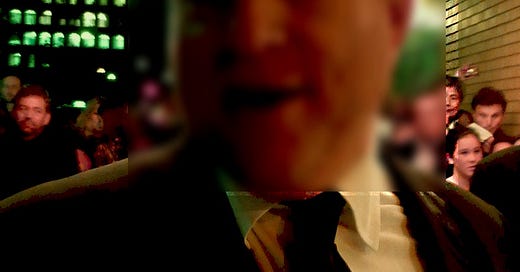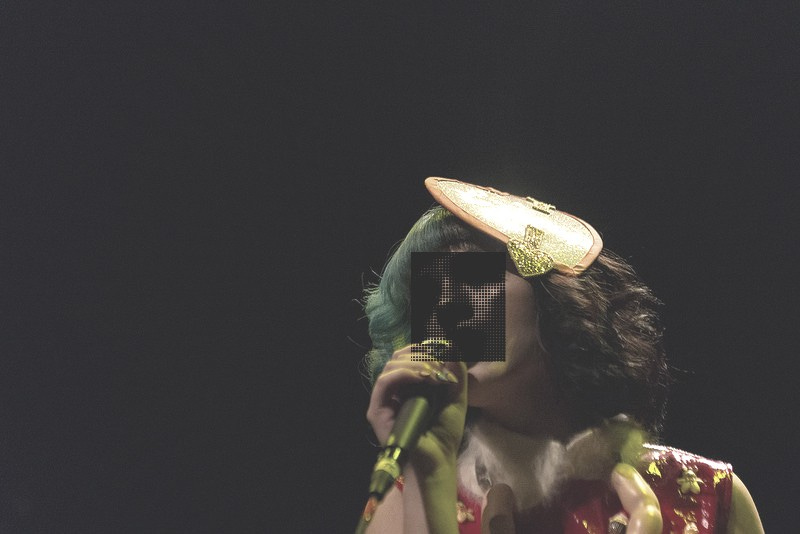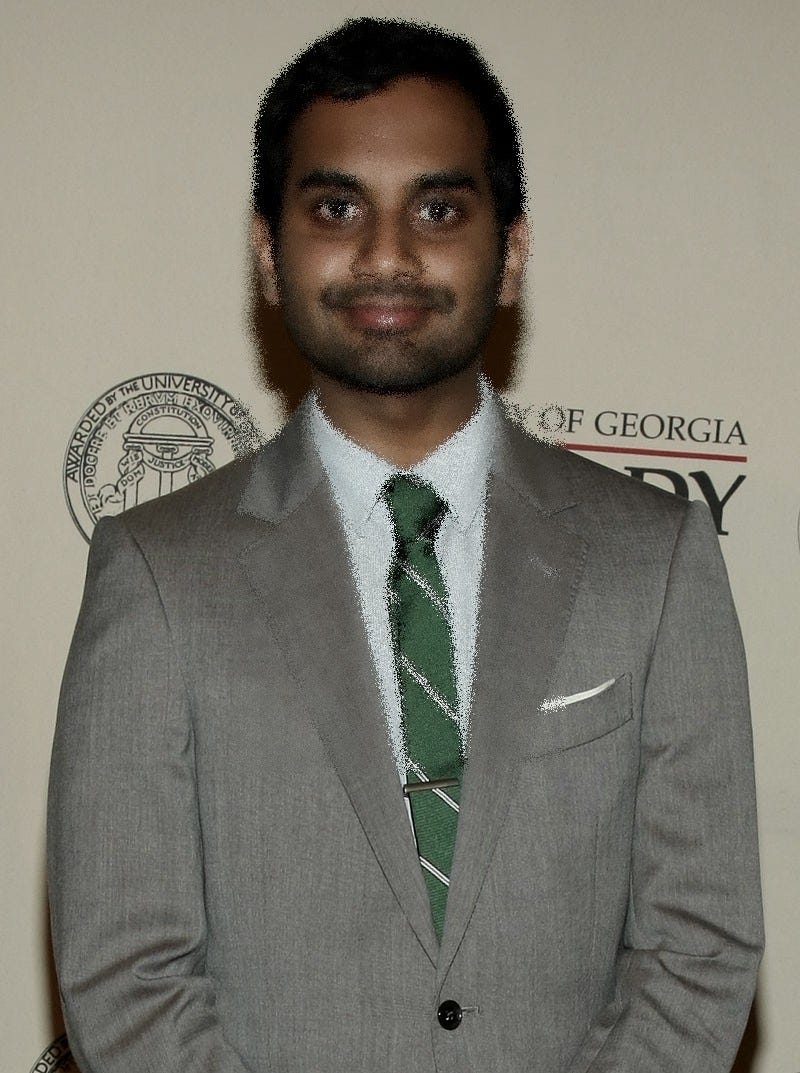Journalists won a Pulitzer. What do victims get?
TW: Sexual Assault, Sexual Coercion, Harassment, Domestic Violence
We all know, by now, that the Me Too movement was sparked by activist Tarana Burke in 2006. What’s less well known is that she first used the phrase on a platform that was fated for death even then: Myspace. It would be 12 more years before Burke’s words would spread throughout the world, via Twitter, a platform that seems as bloated and fated for collapse now as Myspace did then.
It was only when a white woman, Alyssa Milano, used the hashtag to draw attention to accusations against Harvey Weinstein, that the world began to listen. That set the stage for a series of high-profile, stunningly well reported articles in the New Yorker and The New York Times, bringing light and legitimacy to accusations against Weinstein, Bill O’Reilly, Louis CK, and others.
It’s hard to pin down exactly how a tipping point is reached. Burke had been encouraging people to share their sexual assault experiences for over a decade. Milano’s equally white co-star, Rose McGowan, has been warning people about Weinstein for years. In order for people to be receptive, it seems accusations must be numerous, victims must be idealized and privileged, and anecdotes must be gruesome.
It takes domestic violence survivors, on average, seven attempt at leaving their abuser before they’re gone for good. And our connections to beloved movies, TV shows, and stand-up sets are domestic. We rely on them for comfort and companionship, just as we sometimes cling to the people who mistreat us.
And when you’re still caught up in the abuse, you never know which attempt at leaving is gonna stick. For many people, last October was the moment. Floodgates burst, accounts of assault, harassment, and manipulation came flowing, and many bystanders did not turn away — they faced the ugliness of it, believed the victims, bathed themselves in the truth.
And this week, the reporting that began in October and spanned 22 articles, written by Jodi Kantor, Megan Twohey, Ronan Farrow, and many talented others, won the Pulitzer Prize in Public Service. Their work covers dozens of topics — from reviewing the accounts of Weinstein’s 60+ accusers, to exploring the systems of intimidation and misogyny that protected him.
Weinstein is far from the only monstrous subject explored — several pieces discuss the long-standing accusations against Bill O’Reilly and Louis CK. There are essays about cultures of sexual harassment in the restaurant industry, at Vice News, in Chicago’s Ford manufacturing plants, and more.
When these 22 pieces began being published — just six months ago! — the international conversation about assault was fundamentally changed. Emboldened, other accusers came forward — and exposed other beloved media figures. Aziz Ansari. Quentin Tarantino. Al Franken. Kevin Spacey. Even a few women — Melanie Martinez, Gal Gadot — were accused, though most people ignored those. Terry Crews spoke out about harassment perpetrated by Hollywood exec Adam Venit — but, as the Los Angeles DA announced in March, charges were not pressed.
A veil had, partially, lifted. The pervasiveness of assault and harassment came a little more into focus. People who were especially slow on the sociological uptake began to realize that a charming guy who makes beautiful art can be a lurking pervert in private; that your buddy, your boss, your best friend could be a rapist too. Though it seems we have yet to internalize that men can be victims and women assailants, more voices are being heard.
The world has supposedly changed.
And it all started on Myspace in 2006.
…
In 2006, I was an 18-year-old with a Myspace. On Myspace, a man twenty years my senior invited me to his house to take photos for a modeling portfolio. I was really eating disordered and insecure at the time, and the idea that someone thought I was model-thin was enticing. I almost went to that guy’s house, to his basement. If a friend hadn’t called me the same day and invited me to drink sherry on his roof, I would have. I was lucky that time, but in the years to come, I often wasn’t. Most of my friends and loved ones were unlucky, eventually, too.
That same year — 2006 — my Republican mother’s love of Bill O’Reilly was at its zenith. I already knew, by then, that O’Reilly had sexually harassed employees. There was a recording, infamous in liberal circles, in which he instructed an employee to shove a loofah into her vagina. While my mom was aware of it, she didn’t seem to care.
By this time, rumors were circulating in comedy circles about the harassment of Louis CK. It would be years before his accusers came forward, by his peers had heard rumors that he was cornering women and forcing them to watch him masturbate. But most folks didn’t seem to care.
…
I and other survivors have known, for a long time, that most people don’t want to hear hard truths about sexual assault. But the world has supposedly changed. This year, when the Aziz Ansari accusations came to light, I wrote an essay on Medium about my own experience of being coerced into sex. That piece has been read by over 200,000 people. Many people were receptive to it, and thankful for it.
But…I’ve also received dozens of messages telling me that I was too weak, that I should have fought back, that I’m a whiner, that I’m giving men a bad name. People ignore my author bio and call me a woman and a girl, as if womanhood is defined by experiences of rape. Months later, I still get emails asking me probing questions about the details of my assault, demanding that I subject myself to a “debate” about what happened. When I refuse that premise on its face, I get repeated, increasingly angry messages.
The world has supposedly changed. It’s only been six months. I’m tired. It was easier to write online about this stuff before the veil had lifted, when the conversation was populated by victims and people who trusted victims. Before last October, nobody else cared or felt threatened enough to intrude into the conversation.
…
I can’t imagine how Tarana Burke must feel. The profundity of it. You try to tell the world something shattering and vital for years, and nearly nobody listens. And finally, attention is given — but not to you — and you feel the backlash growing, but you don’t have a shred of control over any of it.
A lot of the people who messaged me, defending Aziz Ansari, and downplaying my assault, were women. Some were assault survivors. Most were Aziz Ansari fans. All of them were white. They believed in justice for victims of assault — but only for those who resembled themselves, whose experiences were clear cut.
It’s hard to have a reckoning. We want to feel good. We want to curl up with a DVD of Kill Bill and watch a white lady get what she wants, eat popcorn, feel zero complexity or guilt.
It’s easy to give an award to the comfortable, talented, mostly white people who penned those 22 pieces and got our attention. It’s much easier to do that, than to confront the comments sections full of doubters, listen to women of color who are still not being heard, acknowledge male and nonbinary victims, or attend to people who were victimized by women.
If you haven’t read all 22 Pulitzer-winning pieces, you should. They are bracing, eclectic, and important. Especially the ones about working class victims and women of color — unsurprisingly, those are the articles of the bunch that have been shared the least. You should also find the pieces that are not so well known and broadcasted. Find the Tarana Burke of today, the Cassandra relegated to our era’s version of Myspace, and listen to that person, now, before it is convenient or popular. The truth doesn’t need a prestigious award. It only needs a sympathetic ear.








